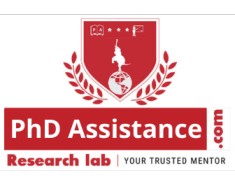

15 Kinds Of Research Methodologies For PhD. Pupils
Basic research.
Pure research or fundamental research or basic research zooms on enhancing scientific knowledge for the exhaustive understanding of a topic or certain natural phenomena, essentially in natural sciences; knowledge that is obtained for the purpose of knowledge it is called fundamental research.
1.Applied research
Research that covers real life applications of the natural sciences; aimed at offering an answer to particular practical issues and develops novel technologies

2.Fixed research versus flexible research
In fixed research, the design of the study is fixed prior to the main phase of data gathering; moreover, fixed designs are essentially theoretical. Variables that need to be controlled and measured need to be known in advance and they are measured quantitatively.
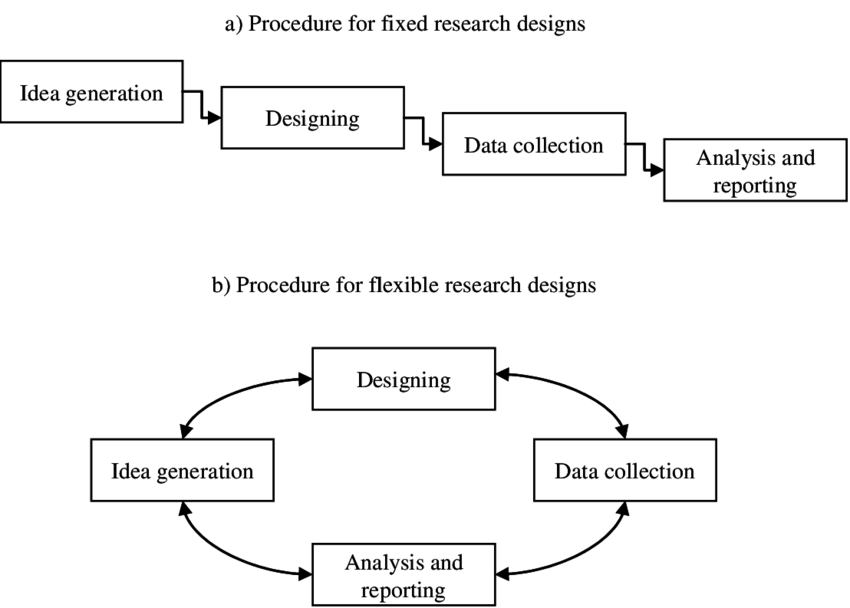
3.Quantitative research and qualitative research
Quantitative research denotes gauging phenomena in various grades; on the other hand, qualitative research sometimes deems Boolean measurements alone; solution can be studied qualitatively for its appropriateness. However, comparison between candidate solutions requires quantitative observation.
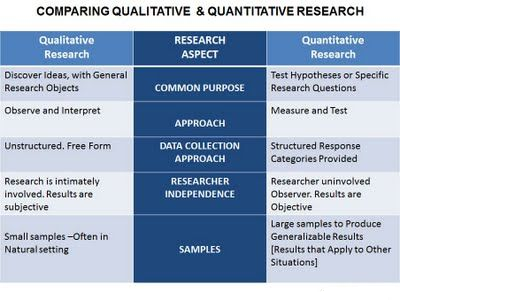
4.Experimental research and non-experimental research
In an experimental design , operationalize the variables to be measured; moreover, operationalize in the best manner. Consider the study expectations, outcome measurement, variable measurement, and the methods to answer research questions.
Think of the practical limitations such as the availability of data-sets and experimental set-ups that represent actual scenarios.
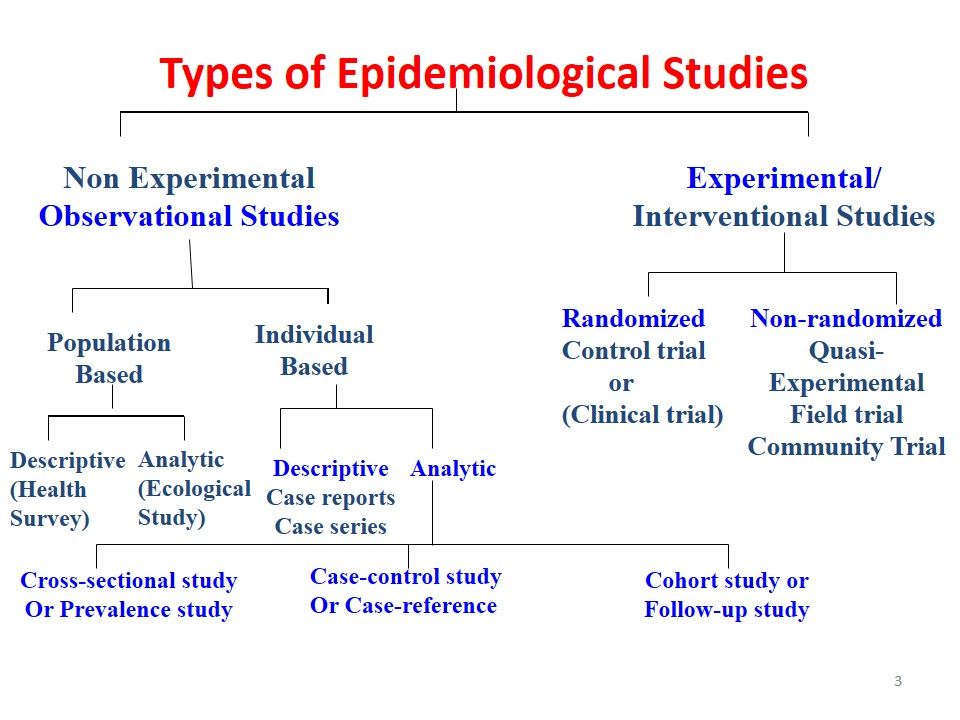
5.Exploratory research and confirmatory research
Confirmatory research tests a priori hypotheses—outcome predictions done prior to the measurement stage. Such a priori hypotheses are usually derived from a theory or the results of previous studies.
Exploratory research generates a posteriori hypotheses by investigating a data-set and ascertaining potential connection between variables.
6.Explanatory research or casual research
Causal research is also called explanatory research ; conducted to ascertain the extent and type of cause-effect relationships. Causal research are conducted to evaluate effects of specific changes on existing norms, various processes etc.
7.Descriptive research
Descriptive research is the available statement of affairs; researcher has no control over variable. Descriptive studies are characterised as simply an effort to ascertain, define or recognize. Not “why it is that way” nor “how it came to be,” which is the objective of analytical research.
8.Historical research
Historical research explores and explains the meanings, phases and traits of a phenomena or process at a certain phase of time in the past; historical research is a research strategy from the research of history.
9.Casual comparative research
Also called as “ex-post facto” research (In Latin, implies “after the fact”); researchers determine the causes or consequences of differences that already exist between or among groups of individuals.
An effort to ascertain a causative relationship between an independent variable and a dependent variable; relationship between the independent variable and dependent variable are usually a suggested relationship (not proved yet) because you do not have complete control over the independent variable
10.Correlational research
Correlational research is a form of non-experimental research technique wherein a researcher measures 2 variables and assesses the statistical connection between them with no influence from any external variable.
The correlation between two variables is given through correlation coefficient, which is a statistical measure that calculates the strength of the relationship between two variables that is a value measured between -1 and +1.
11.Evaluation research method
Evaluation research technique is known as program evaluation and refers to a research purpose instead of a particular technique; objective is to assess the effect of social involvements such as new treatment techniques, innovations in services, etc.
A form of applied research to have some real-world effect. Methods such as surveys and experiments are used in evaluation research.
12.Formative and summative evaluation
While learning is in progress, formative assessment offers feedback and information; measures participant’s progress and also assess researcher’s own progress as well.
For example, when implementing a new program, you can determine whether or not the activity should be used again (or modified) with the help of observation and/or surveying.
Summative assessment happens after the learning has ended and offers info and feedback to sum up the process; essentially, no formal learning is happening at this phase other than incidental learning which might take place through the completion of program.
13.Diagnostic research
Descriptive research studies define the characteristics of a particular individual, or of a group.
Studies showing whether certain variables are linked are examples of diagnostic research.
Researcher defines what he or she wants to measure and finds adequate methods for measuring it along with a clear description of ‘population’.
Aim is to obtain complete and accurate information. And the researcher plans the procedure carefully.
14.Prognostic research
Prognostic research (specifically in clinical research) examines chosen predictive variables and risk factors; prognostic research assesses influence on the outcome of a disease. Clinicians have a better understanding of the history of the ailment.
This understanding facilitates clinical decision-making via providing apt treatment alternatives and helps to predict accurate disease outcomes.
Assessing prognostic studies involves ascertaining the internal validity of the study design and assessing the effects of bias or systemic errors.
15.Action research
A systematic inquiry for improving and/or honing researchers’ actions. Researchers find it an empowering experience.
Action research has positive result for various reasons; most important is that action research is pertinent to the research participants.
Relevance is assured because the aim of each research project is ascertained by the researchers, who are also the main beneficiaries of the research observations.
Related Topics
Essay Writting Services
Research methods
Primary research methods
methodology example
Secondary research methods
Primary and secondary research
Academic Research
scholarly research
- 15 purposes of research
- 15 types of research
- example of phd research methodology
- methodology in phd
- methodology in phd research
- methodology phd
- phd in research methodology
- phd methodology
- PhD Research Methodology
- Phd Research Methods
- PhD Research Process
- phd types of research
- research methodology for phd
- Research Methodology for PhD Thesis
- research methodology in phd
- research methodology phd
- research methods for phd
- research methods phd
- types of phd research
- types of research
- types of research in research methodology
- types of research methodology
- types of research methods
Quick Contact

- Adversial Attacks
- Artificial Intelligence
- Artificial Intelligence (AI) and ML ( Machine Learning )
- Big Data Analysis
- Business and Management
- Categories of Research methodology – PhDAssistance
- Category of Research Proposal Services
- coding & algorithm
- Computer Data Science
- Category of Machine Learning – PhDassistance
- Computer Science/Research writing/Manuscript
- Course Work Service
- Data Analytics
- Data Processing
- Deep Networks
- Dissertation Statistics
- economics dissertation
- Editing Services
- Electrical Engineering Category
- Engineering & Technology
- finance dissertation writing
- Gap Identification
- Healthcare Dissertation Writing
- Intrusion-detection-system
- journals publishing
- Life Science Dissertation writing services
- literature review service
- Machine Learning
- medical thesis writing
- Peer review
- PhD Computer Programming
- PhD Dissertation
- PhD dissertation Writing
- Phd Journal Manuscript
- Annotated Bibliography
- PhD Publication Support
- Phd thesis writing services
- Phd Topic Selection
- Categories of PhdAssistance Dissertation
- Power Safety
- problem identification
- Quantitative Analysis
- quantitative research
- Recent Trends
- Referencing and Formatting
- Research Gap
- research journals
- Research Methodology
- research paper
- Research Proposal Service
- secondary Data collection
- Statistical Consulting Services
- Uncategorized
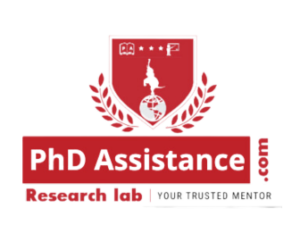
2024-2025 Academic Catalog
Loyola university chicago, 2024-2025 catalog.
The Academic Catalog is the official listing of courses, programs of study, academic policies and degree requirements for Loyola University Chicago. It is published every year in advance of the next academic year.
School and Academic Centers and Institutes
Academic standards and regulations, professional license disclosures, accreditation, research methodology (phd).
The Research Methodology program offers a comprehensive curriculum designed to equip students with the knowledge and skills to conduct rigorous and effective research across various disciplines. Through a combination of theoretical foundations, practical applications, and hands-on experience, students gain proficiency in quantitative, qualitative, and program evaluation methodologies.
The PhD in Research Methodology requires 60 credit hours, the completion of a research portfolio, and a dissertation. Students also participate in a consulting experience, where they participate in research or provide consulting assistance to researchers or organizations.
Required Courses
| Code | Title | Hours |
|---|---|---|
| Survey Research | 3 | |
| Educational Evaluation | 3 | |
| Educational Research I: Building a Body of Evidence With Qualitative Method | 3 | |
| Educational Research II: Building a Body of Evidence Quantitative Method | 3 | |
| One advanced quantitative course | 3 | |
| Multivariate Statistics | ||
| Hierarchical Linear Models | ||
| Meta-Analysis | ||
| One advanced qualitative course | 3 | |
| Single Subject Design | ||
| Item Response Theory | ||
| Mixed Methods Research | ||
| Case Study Research | ||
| Three courses in Minor Research Area | 9 | |
| Eleven Electives | 33 | |
| Total Hours | 60 | |
Comprehensive Assessment
A Comprehensive Research Portfolio is required. The portfolio contains three items: a) a report on a research consulting experience, b) a research paper demonstrating the candidate's understanding of all phases in the research process and the ability to analyze and interpret data from a research study, and c) a literature review of an issue in the candidate's area of concentration.
Dissertation
A dissertation, as well as an oral defense of the dissertation, is required. Once completed, the final dissertation must be submitted to a publicly accessible database according to Graduate School policy.
Graduate & Professional Standards and Regulations
Students in graduate and professional programs can find their Academic Policies in Graduate and Professional Academic Standards and Regulations under their school. Any additional University Policies supercede school policies.
Learning Outcomes
- You will be able to critically evaluate bodies of knowledge from a variety of methodological traditions, use a variety of software programs to implement analyses, and conduct all stages of a research study in applied settings. Plus, you'll participate in a required consulting experience, where you'll conduct a research study and then provide consulting advice to a researcher or organization.
Print Options
Send Page to Printer
Print this page.
Download Page (PDF)
The PDF will include all information unique to this page.
PhD in Qualitative Research and Evaluation Methodologies

If you have a deep interest in the methodological, theoretical, and ethical procedures and challenges inherent to social science research and evaluation, this is a program for you. Our students contribute to the methodological and theoretical development of qualitative research and program evaluation.
Our program prepares research methodologists to study and develop theories and methods for conducting empirical and conceptual social science research and evaluation in education and other social science fields. Specifically, this program develops scholars and methodologists who are prepared to contribute to the advancement of innovative theories and methods used in qualitative research and program evaluation.
- Focus on qualitative methodologies with interdisciplinary topics
- Open to students with a variety of educational backgrounds and experiences
- Small cohorts support individual faculty attention and mentorship
Video: Overview of Programs Offered by the Qualitative Research Program
Video: Meet the Qualitative Research Faculty
The organization of the research and evaluation methods degree program recognizes the wide variety of specialties in which you might develop research agendas.
Our mission is to build your capacity to contribute methodological expertise to collaborative research efforts through real-world opportunities in which you develop and practice the skills needed in your area of emphasis. As a result of this experience, you will have a broad knowledge of research methods along with specific expertise in a focused methodology. You can use this knowledge to pursue careers as research methodologists and evaluation specialists in higher education, corporations, and non-profit agencies.
The Ph.D. degree is a 54-credit hour degree program in which students engage in advanced study of qualitative theories and methods, mixed methods, and approaches to evaluation.
- Core Coursework - 21 hours
- Research Seminar - 3 hours
- Elective Coursework - 18 hours
- Internship - 6 hours
- Doctoral hours Minimum of - 3 hours
- Dissertation Minimum of - 3 hours
- TOTAL - 54 hours
Part 1: Apply to the University of Georgia
The Graduate School handles admission for all graduate programs at the University of Georgia, including those in the College of Education. The Graduate School website contains important details about the application process, orientation, and many other useful links to guide you through the process of attending UGA at the graduate level.
Start A Graduate School Application
Part 2: Apply to the Ph.D. in Qualitative Research and Evaluation Methodologies
Please upload the following materials in your online application:
- Personal statement
- Curriculum vitae
- Writing sample (20-25 pages maximum)
Summary of Application Materials
Both the Graduate School and the academic department review application materials simultaneously. The Graduate School then reviews the department’s recommendation and makes the final determination on admission. As an applicant you will receive a formal letter regarding your admission from the Office of Graduate Admissions. You must be admitted to a program to be eligible to register for courses. Admission is granted for a specific semester and is validated by registration for that semester. Applicants must be admitted to the Graduate School before they are eligible to register. International applicants whose primary language is not English must submit scores from the TOEFL or IELTS tests in addition to a Certificate of Finances form. No application will be considered until all materials are received. To apply to the Ph.D. in Qualitative Research and Evaluation Methodologies, applicants must have completed a master’s degree. GRE scores are required for all applications.
Personal Statement
The program requires a personal statement, usually in the form of a letter of 2 to 3 pages, describing your background, work and research experience, interests in research and/or evaluation methodologies, and career aspirations. Specifically, you should be sure to address the following questions:
- What experience or background do you have in research methodologies?
- Why are you interested in the study of qualitative or evaluation methodologies?
- What research or evaluation questions do you hope to pursue, and why?
- In what way will the study of research or evaluation methodologies shape your career?
Writing Sample
You are required to submit a sample of formal writing (20-25 pages maximum). Scholarly or academic writing is preferred whether or not it has been published. If you have not published, recent course papers or work-related reports are appropriate.
Admissions Interviews
After a review of applications, selected applicants will be interviewed by the Ph.D. in Research and Evaluation Methodologies (REM) Admissions Committee early in the Spring semester for a subsequent Fall semester admission.
Deadline To Apply
Log Into Existing Application

Additional Resources
Please use our online form if you have any questions for the department. Please be as specific as possible so that we may quickly assist you.
The College’s programs are taught by dedicated faculty who are experts in a range of areas and are passionate about helping students succeed both in their programs and professionally.
Meet the Faculty View Affiliated Faculty
Most graduate students at UGA are not assigned to a faculty advisor until after admittance. A close working relationship with your advisor is paramount to progressing through your program of study.
Almost all in-state students begin their studies at UGA paying limited tuition or fees. Please note that these amounts are subject to change and are meant to give prospective students an idea of the costs associated with a degree at the University of Georgia College of Education.
Students may qualify for a variety of assistantships, scholarships, and other financial awards to help offset the cost of tuition, housing, and other expenses.
Tuition Rates Browse Financial Aid
In this program, you will take focused coursework with individual attention from faculty mentors .
Each semester, you will also take part in a seminar that brings together faculty in the qualitative research program to discuss topics of relevance to scholarship and teaching in qualitative research methodologies in higher education.
See for yourself how much UGA College of Education has to offer! Schedule a tour of campus to learn more about the UGA student experience.
Schedule A Visit
Useful Links
- Affiliate Faculty
- Course List
- Graduate Handbook
- Summary of Materials Required by Area of Emphasis
- Projected QUAL Course Schedule
- Qualitative Research Program Community Practices
Testimonials
What first attracted me to the Qualitative Research and Evaluation Ph.D. program was the balance it offers between the philosophy of science and the practical application of research and evaluation. The program’s faculty members are amazing at supporting students’ learning, and at pushing us to be creative, deep thinking, and daring as we explore methodologies. Nuria Jaumot-Pascual, Doctoral Student
My path through the Qualitative Research and Evaluation Ph.D. program had me exploring the depths of qualitative research rarely visited by researchers in the health sciences but that have been essential in my current position as Senior Research Associate at Evidera. Now I find myself often referencing qualitative research theory and history when selecting strategies for new studies or when arranging trainings across my organization. Moreover, the breadth of interests across students in the program provided unique perspectives that enriched my journey. Most of all though, I am impressed with how well the faculty helped guide me through the program, making theory, history, and applied work relevant for my own career goals. Sean Halpin, Former Doctoral Student
I really discovered the world of qualitative research with the Qualitative Research and Evaluation Methodologies Ph.D. program, and the instructors made me adore it. Their support for the students’ learning was so impeccable. They had genial ways to encourage students to think outside the box and to be creative from every point of view, especially when it comes to methodologies. Bidossessi Mariano Ghislain Dossou Kpanou, Former Doctoral Student

How To Choose Your Research Methodology
Qualitative vs quantitative vs mixed methods.
By: Derek Jansen (MBA). Expert Reviewed By: Dr Eunice Rautenbach | June 2021
Without a doubt, one of the most common questions we receive at Grad Coach is “ How do I choose the right methodology for my research? ”. It’s easy to see why – with so many options on the research design table, it’s easy to get intimidated, especially with all the complex lingo!
In this post, we’ll explain the three overarching types of research – qualitative, quantitative and mixed methods – and how you can go about choosing the best methodological approach for your research.
Overview: Choosing Your Methodology
Understanding the options – Qualitative research – Quantitative research – Mixed methods-based research
Choosing a research methodology – Nature of the research – Research area norms – Practicalities

1. Understanding the options
Before we jump into the question of how to choose a research methodology, it’s useful to take a step back to understand the three overarching types of research – qualitative , quantitative and mixed methods -based research. Each of these options takes a different methodological approach.
Qualitative research utilises data that is not numbers-based. In other words, qualitative research focuses on words , descriptions , concepts or ideas – while quantitative research makes use of numbers and statistics. Qualitative research investigates the “softer side” of things to explore and describe, while quantitative research focuses on the “hard numbers”, to measure differences between variables and the relationships between them.
Importantly, qualitative research methods are typically used to explore and gain a deeper understanding of the complexity of a situation – to draw a rich picture . In contrast to this, quantitative methods are usually used to confirm or test hypotheses . In other words, they have distinctly different purposes. The table below highlights a few of the key differences between qualitative and quantitative research – you can learn more about the differences here.
- Uses an inductive approach
- Is used to build theories
- Takes a subjective approach
- Adopts an open and flexible approach
- The researcher is close to the respondents
- Interviews and focus groups are oftentimes used to collect word-based data.
- Generally, draws on small sample sizes
- Uses qualitative data analysis techniques (e.g. content analysis , thematic analysis , etc)
- Uses a deductive approach
- Is used to test theories
- Takes an objective approach
- Adopts a closed, highly planned approach
- The research is disconnected from respondents
- Surveys or laboratory equipment are often used to collect number-based data.
- Generally, requires large sample sizes
- Uses statistical analysis techniques to make sense of the data
Mixed methods -based research, as you’d expect, attempts to bring these two types of research together, drawing on both qualitative and quantitative data. Quite often, mixed methods-based studies will use qualitative research to explore a situation and develop a potential model of understanding (this is called a conceptual framework), and then go on to use quantitative methods to test that model empirically.
In other words, while qualitative and quantitative methods (and the philosophies that underpin them) are completely different, they are not at odds with each other. It’s not a competition of qualitative vs quantitative. On the contrary, they can be used together to develop a high-quality piece of research. Of course, this is easier said than done, so we usually recommend that first-time researchers stick to a single approach , unless the nature of their study truly warrants a mixed-methods approach.
The key takeaway here, and the reason we started by looking at the three options, is that it’s important to understand that each methodological approach has a different purpose – for example, to explore and understand situations (qualitative), to test and measure (quantitative) or to do both. They’re not simply alternative tools for the same job.
Right – now that we’ve got that out of the way, let’s look at how you can go about choosing the right methodology for your research.

2. How to choose a research methodology
To choose the right research methodology for your dissertation or thesis, you need to consider three important factors . Based on these three factors, you can decide on your overarching approach – qualitative, quantitative or mixed methods. Once you’ve made that decision, you can flesh out the finer details of your methodology, such as the sampling , data collection methods and analysis techniques (we discuss these separately in other posts ).
The three factors you need to consider are:
- The nature of your research aims, objectives and research questions
- The methodological approaches taken in the existing literature
- Practicalities and constraints
Let’s take a look at each of these.
Factor #1: The nature of your research
As I mentioned earlier, each type of research (and therefore, research methodology), whether qualitative, quantitative or mixed, has a different purpose and helps solve a different type of question. So, it’s logical that the key deciding factor in terms of which research methodology you adopt is the nature of your research aims, objectives and research questions .
But, what types of research exist?
Broadly speaking, research can fall into one of three categories:
- Exploratory – getting a better understanding of an issue and potentially developing a theory regarding it
- Confirmatory – confirming a potential theory or hypothesis by testing it empirically
- A mix of both – building a potential theory or hypothesis and then testing it
As a rule of thumb, exploratory research tends to adopt a qualitative approach , whereas confirmatory research tends to use quantitative methods . This isn’t set in stone, but it’s a very useful heuristic. Naturally then, research that combines a mix of both, or is seeking to develop a theory from the ground up and then test that theory, would utilize a mixed-methods approach.

Let’s look at an example in action.
If your research aims were to understand the perspectives of war veterans regarding certain political matters, you’d likely adopt a qualitative methodology, making use of interviews to collect data and one or more qualitative data analysis methods to make sense of the data.
If, on the other hand, your research aims involved testing a set of hypotheses regarding the link between political leaning and income levels, you’d likely adopt a quantitative methodology, using numbers-based data from a survey to measure the links between variables and/or constructs .
So, the first (and most important thing) thing you need to consider when deciding which methodological approach to use for your research project is the nature of your research aims , objectives and research questions. Specifically, you need to assess whether your research leans in an exploratory or confirmatory direction or involves a mix of both.
The importance of achieving solid alignment between these three factors and your methodology can’t be overstated. If they’re misaligned, you’re going to be forcing a square peg into a round hole. In other words, you’ll be using the wrong tool for the job, and your research will become a disjointed mess.
If your research is a mix of both exploratory and confirmatory, but you have a tight word count limit, you may need to consider trimming down the scope a little and focusing on one or the other. One methodology executed well has a far better chance of earning marks than a poorly executed mixed methods approach. So, don’t try to be a hero, unless there is a very strong underpinning logic.
Need a helping hand?
Factor #2: The disciplinary norms
Choosing the right methodology for your research also involves looking at the approaches used by other researchers in the field, and studies with similar research aims and objectives to yours. Oftentimes, within a discipline, there is a common methodological approach (or set of approaches) used in studies. While this doesn’t mean you should follow the herd “just because”, you should at least consider these approaches and evaluate their merit within your context.
A major benefit of reviewing the research methodologies used by similar studies in your field is that you can often piggyback on the data collection techniques that other (more experienced) researchers have developed. For example, if you’re undertaking a quantitative study, you can often find tried and tested survey scales with high Cronbach’s alphas. These are usually included in the appendices of journal articles, so you don’t even have to contact the original authors. By using these, you’ll save a lot of time and ensure that your study stands on the proverbial “shoulders of giants” by using high-quality measurement instruments .
Of course, when reviewing existing literature, keep point #1 front of mind. In other words, your methodology needs to align with your research aims, objectives and questions. Don’t fall into the trap of adopting the methodological “norm” of other studies just because it’s popular. Only adopt that which is relevant to your research.
Factor #3: Practicalities
When choosing a research methodology, there will always be a tension between doing what’s theoretically best (i.e., the most scientifically rigorous research design ) and doing what’s practical , given your constraints . This is the nature of doing research and there are always trade-offs, as with anything else.
But what constraints, you ask?
When you’re evaluating your methodological options, you need to consider the following constraints:
- Data access
- Equipment and software
- Your knowledge and skills
Let’s look at each of these.
Constraint #1: Data access
The first practical constraint you need to consider is your access to data . If you’re going to be undertaking primary research , you need to think critically about the sample of respondents you realistically have access to. For example, if you plan to use in-person interviews , you need to ask yourself how many people you’ll need to interview, whether they’ll be agreeable to being interviewed, where they’re located, and so on.
If you’re wanting to undertake a quantitative approach using surveys to collect data, you’ll need to consider how many responses you’ll require to achieve statistically significant results. For many statistical tests, a sample of a few hundred respondents is typically needed to develop convincing conclusions.
So, think carefully about what data you’ll need access to, how much data you’ll need and how you’ll collect it. The last thing you want is to spend a huge amount of time on your research only to find that you can’t get access to the required data.
Constraint #2: Time
The next constraint is time. If you’re undertaking research as part of a PhD, you may have a fairly open-ended time limit, but this is unlikely to be the case for undergrad and Masters-level projects. So, pay attention to your timeline, as the data collection and analysis components of different methodologies have a major impact on time requirements . Also, keep in mind that these stages of the research often take a lot longer than originally anticipated.
Another practical implication of time limits is that it will directly impact which time horizon you can use – i.e. longitudinal vs cross-sectional . For example, if you’ve got a 6-month limit for your entire research project, it’s quite unlikely that you’ll be able to adopt a longitudinal time horizon.
Constraint #3: Money
As with so many things, money is another important constraint you’ll need to consider when deciding on your research methodology. While some research designs will cost near zero to execute, others may require a substantial budget .
Some of the costs that may arise include:
- Software costs – e.g. survey hosting services, analysis software, etc.
- Promotion costs – e.g. advertising a survey to attract respondents
- Incentive costs – e.g. providing a prize or cash payment incentive to attract respondents
- Equipment rental costs – e.g. recording equipment, lab equipment, etc.
- Travel costs
- Food & beverages
These are just a handful of costs that can creep into your research budget. Like most projects, the actual costs tend to be higher than the estimates, so be sure to err on the conservative side and expect the unexpected. It’s critically important that you’re honest with yourself about these costs, or you could end up getting stuck midway through your project because you’ve run out of money.
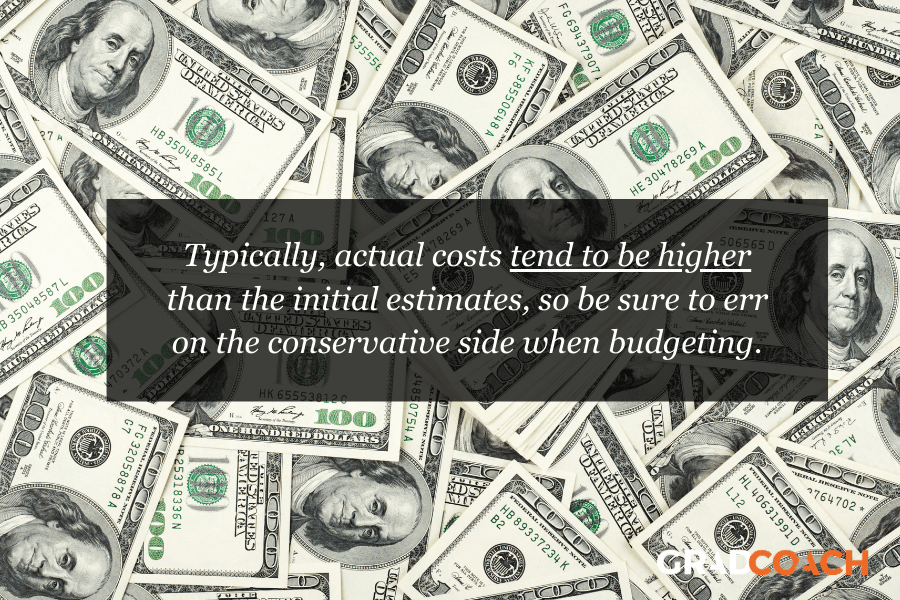
Constraint #4: Equipment & software
Another practical consideration is the hardware and/or software you’ll need in order to undertake your research. Of course, this variable will depend on the type of data you’re collecting and analysing. For example, you may need lab equipment to analyse substances, or you may need specific analysis software to analyse statistical data. So, be sure to think about what hardware and/or software you’ll need for each potential methodological approach, and whether you have access to these.
Constraint #5: Your knowledge and skillset
The final practical constraint is a big one. Naturally, the research process involves a lot of learning and development along the way, so you will accrue knowledge and skills as you progress. However, when considering your methodological options, you should still consider your current position on the ladder.
Some of the questions you should ask yourself are:
- Am I more of a “numbers person” or a “words person”?
- How much do I know about the analysis methods I’ll potentially use (e.g. statistical analysis)?
- How much do I know about the software and/or hardware that I’ll potentially use?
- How excited am I to learn new research skills and gain new knowledge?
- How much time do I have to learn the things I need to learn?
Answering these questions honestly will provide you with another set of criteria against which you can evaluate the research methodology options you’ve shortlisted.
So, as you can see, there is a wide range of practicalities and constraints that you need to take into account when you’re deciding on a research methodology. These practicalities create a tension between the “ideal” methodology and the methodology that you can realistically pull off. This is perfectly normal, and it’s your job to find the option that presents the best set of trade-offs.
Recap: Choosing a methodology
In this post, we’ve discussed how to go about choosing a research methodology. The three major deciding factors we looked at were:
- Exploratory
- Confirmatory
- Combination
- Research area norms
- Hardware and software
- Your knowledge and skillset
If you have any questions, feel free to leave a comment below. If you’d like a helping hand with your research methodology, check out our 1-on-1 research coaching service , or book a free consultation with a friendly Grad Coach.

Psst... there’s more!
This post was based on one of our popular Research Bootcamps . If you're working on a research project, you'll definitely want to check this out ...
Very useful and informative especially for beginners
Nice article! I’m a beginner in the field of cybersecurity research. I am a Telecom and Network Engineer and Also aiming for PhD scholarship.
I find the article very informative especially for my decitation it has been helpful and an eye opener.
Hi I am Anna ,
I am a PHD candidate in the area of cyber security, maybe we can link up
The Examples shows by you, for sure they are really direct me and others to knows and practices the Research Design and prepration.
I found the post very informative and practical.
I struggle so much with designs of the research for sure!
I’m the process of constructing my research design and I want to know if the data analysis I plan to present in my thesis defense proposal possibly change especially after I gathered the data already.
Thank you so much this site is such a life saver. How I wish 1-1 coaching is available in our country but sadly it’s not.
Submit a Comment Cancel reply
Your email address will not be published. Required fields are marked *
Save my name, email, and website in this browser for the next time I comment.
- Print Friendly
You are using an outdated browser. This website is best viewed in IE 9 and above. You may continue using the site in this browser. However, the site may not display properly and some features may not be supported. For a better experience using this site, we recommend upgrading your version of Internet Explorer or using another browser to view this website.
- Download the latest Internet Explorer - No thanks (close this window)
- Penn GSE Environmental Justice Statement
- Philadelphia Impact
- Global Initiatives
- Diversity & Inclusion
- Catalyst @ Penn GSE
- Penn GSE Leadership
- Program Finder
- Academic Divisions & Programs
- Professional Development & Continuing Education
- Teacher Programs & Certifications
- Undergraduates
- Dual and Joint Degrees
- Faculty Directory
- Research Centers, Projects & Initiatives
- Lectures & Colloquia
- Books & Publications
- Academic Journals
- Application Requirements & Deadlines
- Tuition & Financial Aid
- Campus Visits & Events
- International Students
- Options for Undergraduates
- Non-Degree Studies
- Contact Admissions / Request Information
- Life at Penn GSE
- Penn GSE Career Paths
- Living in Philadelphia
- DE&I Resources for Students
- Student Organizations
- Career & Professional Development
- News Archive
- Events Calendar
- The Educator's Playbook
- Find an Expert
- Race, Equity & Inclusion
- Counseling & Psychology
- Education Innovation & Entrepreneurship
- Education Policy & Analysis
- Higher Education
- Language, Literacy & Culture
- Teaching & Learning
- Support Penn GSE
- Contact Development & Alumni Relations
- Find a Program
- Request Info
- Make a Gift
- Current Students
- Staff & Faculty
Search form
Quantitative methods, doctor of philosophy (ph.d.), you are here, a doctoral program focused on measurement and evaluation that trains students to create new research methodologies and design empirical data analyses. .
The Quantitative Methods Ph.D. program is designed to prepare future professors at research universities and principal investigators at research and assessment organizations in education, psychology, and related human services fields.
What Sets Us Apart
About the program.
Rigorous coursework across the field of education will prepare students with the tools needed to conduct cutting-edge research and assessment.
Fall: 4 courses; Spring: 4 courses
Research apprenticeship Yes
Culminating experience Dissertation
The Ph.D. program in Quantitative Methods is designed to prepare students for faculty positions at universities as well as important responsibilities at research and assessment organizations. Graduates will be prepared to design first-rate empirical research and data analyses and to contribute to the development of new research methodologies. Students who apply directly to the doctoral-level study program following a baccalaureate degree will enroll in the core courses described for the M.S.Ed. degree in Statistics, Measurement, Assessment, and Technology (SMART) and the more advanced courses for the Ph.D. degree. This will include the development of independent empirical research projects.
Doctoral degree studies include advanced graduate coursework, a research apprenticeship, a Ph.D. Candidacy Examination, and the completion of a doctoral dissertation that represents an independent and significant contribution to knowledge. The research apprenticeship provides students with an opportunity to collaborate with a faculty sponsor on an ongoing basis and to participate in field research leading to a dissertation.
For information about courses and requirements, visit the Quantitative Methods Ph.D. program in the University Catalog .
Our Faculty

Affiliated Faculty
Eric T. Bradlow K.P. Chao Professor, The Wharton School Ph.D., Harvard University
Timothy Victor Adjunct Associate Professor, Penn GSE
"Penn GSE’s Quantitative Methods Ph.D. program equipped me with the methodological skills to do impactful applied education research as soon as I graduated."
Anna Rhoad-Drogalis
Our graduates.
Graduates go on to careers as university professors, researchers and psyshometricians for government agencies, foundations, nonprofits organizations, and corporations.
Alumni Careers
- Assistant Professor, Texas A&M University-Corpus Christi
- Associate Director, Bristol-Myers Squibb
- Lead Psychometrician, American Institute of Certified Public Accountants
- Research Analyst, Penn Child Research Center, University of Pennsylvania
- Senior Director, Educational Testing Service
- Senior Researcher, Mathematica
Admissions & Financial Aid
Please visit our Admissions and Financial Aid pages for specific information on the application requirements , as well as information on tuition, fees, financial aid, scholarships, and fellowships.
Contact us if you have any questions about the program.
Graduate School of Education University of Pennsylvania 3700 Walnut Street Philadelphia, PA 19104 (215) 898-6415 [email protected] [email protected]
Christine P. Lee Program Manager (215) 898-0505 [email protected]
Please view information from our Admissions and Financial Aid Office for specific information on the cost of this program.
All Ph.D. students are guaranteed a full scholarship for their first four years of study, as well as a stipend and student health insurance. Penn GSE is committed to making your graduate education affordable, and we offer generous scholarships, fellowships, and assistantships.
Related News & Research

Policy Corner: SCOTUS decision striking down Biden admin's Student Loan Forgiveness Program will have wide-ranging consequences

Alan Ruby discusses success of India’s universities in achieving sustainable development
From philadelphia to seoul, global master’s program builds higher ed management.

Bowden: New budget formula could lead to "stunning losses" for some Pa. schools

Center on Standards, Alignment, Instruction, and Learning
The Center on Standards, Alignment, Instruction, and Learning (C-SAIL) examines how college- and career-ready standards are implemented, if they improve student learning, and what instructional tools measure and support their implementation.

Penn Early Childhood and Family Research Center
The Penn Early Childhood and Family Research Center aims to advance the use of science in a context of public trust to address problems affecting the well-being of young children and families facing systemic injustice and disadvantage.
You May Be Interested In
Related programs.
- Education Policy M.S.Ed.
- Education, Culture, and Society Ph.D.
- Higher Education Ph.D.
- Quantitative Methods M.Phil.Ed.
- Statistics, Measurement, Assessment, and Research Technology M.S.Ed.
Related Topics
PhD in Research Methodology
Application deadline and contacts.
| Start Term | Deadline |
|---|---|
| Fall | December 1st |
- For application related questions, contact Graduate Enrollment Management .
Admission Requirements
- A Completed Application Form. You may submit your application form online .
- Official Transcripts Applicants must submit official transcripts for all undergraduate and any graduate work. To be eligible for admission, your transcript must show an earned bachelor's degree or a bachelor’s degree in progress. Certified copies of transcripts are acceptable; faxed copies of transcripts are not considered official. If you attended Loyola University Chicago previously, you do not need to request transcripts; we have them on record. Transcripts must show a GPA of at least a 3.0. In exceptional cases, applicants whose undergraduate GPA is below 3.0 may be admitted. Each program area gives meaningful consideration to the applicant's graduate GPA, recommendations, professional experience and reasons for pursuing a graduate program, as well as to the diversity of the student body.
- Letters of Recommendation If you supply your recommender's email address as part of your completed online application form, then your recommendation letters will be submitted directly through the online application system. We ask that you submit at least two letters of recommendation, but no more than three. Recommenders may be academic or professional in nature.
- Academic and research interests, as well as your professional goals;
- Life experiences that have influenced your view of social justice;
- Any research and professional experiences
- Resume A current resume that highlights at least two years of work experience relevant to your professional goals.
- Interview Our admissions committee may request an interview. Interviews are done by invitation only. If invited to campus, an email will be sent with specific instructions prior to the interview.
- International Students Additional requirements for International applicants including English Language and Transcript & Credentials can be found on our International Students page

COMMENTS
With a PhD in Research Methodology, you can work in educational and institutional research, using numbers to tell the story of the human experience and create meaningful change.
Discover 15 comprehensive research methodologies for PhD students, ranging from quantitative to qualitative approaches and find the perfect method for your dissertation.
Research Methodology (PhD) Overview. Curriculum. Learning Outcomes. The Research Methodology program offers a comprehensive curriculum designed to equip students with the knowledge and skills to conduct rigorous and effective research across various disciplines.
The Ph.D. degree is a 54-credit hour degree program in which students engage in advanced study of qualitative theories and methods, mixed methods, and approaches to evaluation. Core Coursework - 21 hours. Research Seminar - 3 hours.
The Research Methodology Specialization provides theoretical and practical knowledge and applied skills for research design and methods including quantitative, qualitative, and mixed-method research.
This book aims to introduce these methodologies, methods and tools of academic research to PhD students in doctoral programmes in management during their first year.
Learn how to choose the best research methodology (qualitative, quantitative and mixed methods) for your dissertation or thesis.
Preparing students to tackle problems of practice and policy, and create innovative research agendas, requires intentionality in the mentods coursework that supports students’ development of independent projects, meaningful contributions to advisors’ research, and critical analysis of past research.
The Quantitative Methods Ph.D. program is designed to prepare future professors at research universities and principal investigators at research and assessment organizations in education, psychology, and related human services fields.
PhD in Research Methodology. Application Deadline and Contacts. Contact. For application related questions, contact Graduate Enrollment Management. Admission Requirements. A Completed Application Form. You may submit your application form online. Official Transcripts.